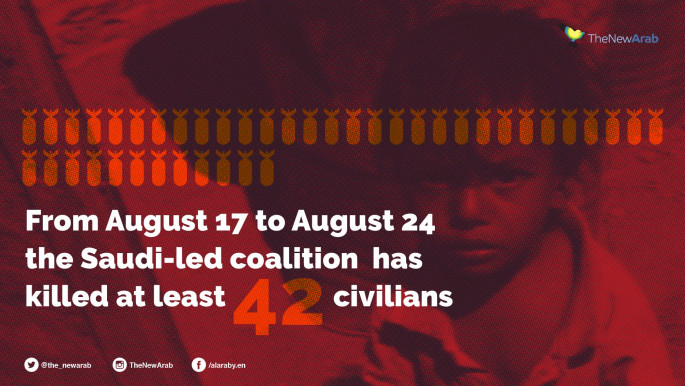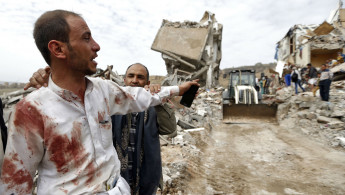Saudi coalition admits deadly Yemen airstrike, blames 'technical mistake'
 |
|
Saleh Muhammad Saad, another uncle of Buthaina, said Mounir rushed to the family home when the young girl's father told him Saudi planes were bombing the neighbourhood, but he never returned.
When Saleh arrived, the building was a ruin of concrete rubble, but hearing survivors groan underneath the debris he battled to free them.
"I could hear the shouts of one of their neighbours from under the rubble, and tried to remove the rubble from on top of (Buthaina's father) and his wife, but I couldn't. They died," he told Reuters.
"We lifted the rubble and saw first her brother Ammar, who was three, and her four sisters, all of them dead. I paused a little and just screamed out from the pain. But I pulled myself together, got back there and then heard Buthaina calling."
Her survival has given him some solace, even as he mourned the deaths of the rest of his family.
"Her sister Raghad always used to come up and hug me and kiss me when I visited. I used to say to her, 'Come on, that's enough.' And she would say 'Oh no it isn't!' and just keep hugging and kissing."
UN figures suggest more than 10,000 people have been killed and thousands more wounded since Saudi Arabia and its allies intervened on behalf of the internationally recognised government.
International rights groups have accused the coalition of bombing civilian areas including public gatherings, markets, hospitals and residential areas across Yemen since the aerial campaign against Houthi rebels began in 2015.





 Follow the Middle East's top stories in English at The New Arab on Google News
Follow the Middle East's top stories in English at The New Arab on Google News
![Israeli forces ordered bombed Gaza's Jabalia, ordering residents to leave [Getty]](/sites/default/files/styles/image_330x185/public/2176418030.jpeg?h=a5f2f23a&itok=_YGZaP1z)

